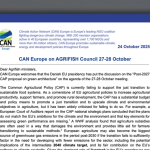Background and purpose of the policy brief
At their joint summit in May 2020, India and the EU agreed on the “EU-India Strategic Partnership: A Roadmap to 2025”. Climate change and clean energy, as well as the environment more broadly, are a distinct element within that roadmap. Both Parties committed to continue the Clean Energy and Climate Partnership established at the 2016 Summit. In the EU-India Leaders’ Meeting, 8 May 2021, both Parties agreed on a sustainable connectivity partnership, which includes a number of climate relevant elements, and also highlighted the first “EU-India High-Level Dialogue on Climate Change” which took place a few weeks before. The 2021 meeting has been subject to some high-level analysis both by Indian think tanks as well as for example by CAN Europe.
No major bilateral summit took place between India and the EU in 2022, and none seems to be currently scheduled for 2023. However, with India’s role as G20 presidency, to which also the EU is a member (in addition to various EU Member States), as well as with increased attention to Just Energy Transition Partnerships, there is a particular momentum and usefulness to take a look at the cooperation between the EU and India in the area of climate and energy, with a focus on just and inclusive transitions and equitable partnership. There is also a need to strengthen EU and Indian civil society voices towards the Partnership.
The purpose of this policy brief is to assess the progress and state of implementation of the EU-India Clean Energy and Climate Partnership since its establishment in 2015, as well as providing recommendations from an EU-Indian civil society perspective. The EU and India have committed to continuing this partnership, which is a key element in their strategic partnership roadmap to 2025. The focus of this joint research by CAN South Asia and CAN Europe, with support from the European Climate Foundation, is on understanding the level of ambition and progress made since 2021, which requires deeper analysis of related information on activities undertaken by the partnership, as well as the perspectives of main stakeholders and civil society involved on both sides.
The preparation of this brief has also drawn on initial stakeholder consultations in India and Europe. As it is planned to update the paper ahead of COP28 in light of recent developments, this is considered a consultation draft, with further inputs and observations of experts and stakeholders from both regions welcome.
These should be sent to Shailendra Yashwant (CAN South Asia), shai@cansouthasia.net
Find the full briefing here



